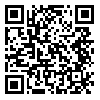Abstract: (1140 Views)
Background and purpose: Fear of childbirth is one of the basic issues of pregnancy. This research was conducted with the aim of comparing the effectiveness of behavioral activation and body relaxation on the fear of childbirth and choosing the type of childbirth in primiparous women.
Research method: The research method was semi-experimental, with a pre-test-post-test design and a control group. The statistical population consisted of primiparous pregnant women who referred to the clinics of Karaj city in 2021 to receive prenatal care. A number of 144 qualified volunteers were included in the study using available sampling method and were randomly divided into three groups of 48 people, experiment 1 (behavioral activation), experiment 2 (body relaxation) and the control group. The research tool was the attitude towards childbirth questionnaire (Louis, 2000). Data were analyzed by univariate covariance analysis, Bonferroni post hoc test and McNemar test at a significance level of 0.05 by SPSS version 26 software.
Findings: The findings showed that the treatment of behavioral activation and body relaxation had an effect on the fear of childbirth in primiparous women (p<0.05). Behavioral activation therapy was more effective in reducing the fear of childbirth and increasing the choice of natural childbirth in primiparous women compared to relaxation (p<0.05).
Conclusion: Based on the research results, it can be said that behavioral activation intervention is more effective compared to relaxation. As a result, behavioral activation intervention can be used to reduce the fear of childbirth and improve the attitude towards choosing the type of childbirth in primiparous women.
Research method: The research method was semi-experimental, with a pre-test-post-test design and a control group. The statistical population consisted of primiparous pregnant women who referred to the clinics of Karaj city in 2021 to receive prenatal care. A number of 144 qualified volunteers were included in the study using available sampling method and were randomly divided into three groups of 48 people, experiment 1 (behavioral activation), experiment 2 (body relaxation) and the control group. The research tool was the attitude towards childbirth questionnaire (Louis, 2000). Data were analyzed by univariate covariance analysis, Bonferroni post hoc test and McNemar test at a significance level of 0.05 by SPSS version 26 software.
Findings: The findings showed that the treatment of behavioral activation and body relaxation had an effect on the fear of childbirth in primiparous women (p<0.05). Behavioral activation therapy was more effective in reducing the fear of childbirth and increasing the choice of natural childbirth in primiparous women compared to relaxation (p<0.05).
Conclusion: Based on the research results, it can be said that behavioral activation intervention is more effective compared to relaxation. As a result, behavioral activation intervention can be used to reduce the fear of childbirth and improve the attitude towards choosing the type of childbirth in primiparous women.
Type of Study: Original Research Article |
Subject:
Psychology
Send email to the article author
| Rights and permissions | |
 |
This work is licensed under a Creative Commons Attribution-NonCommercial 4.0 International License. |



